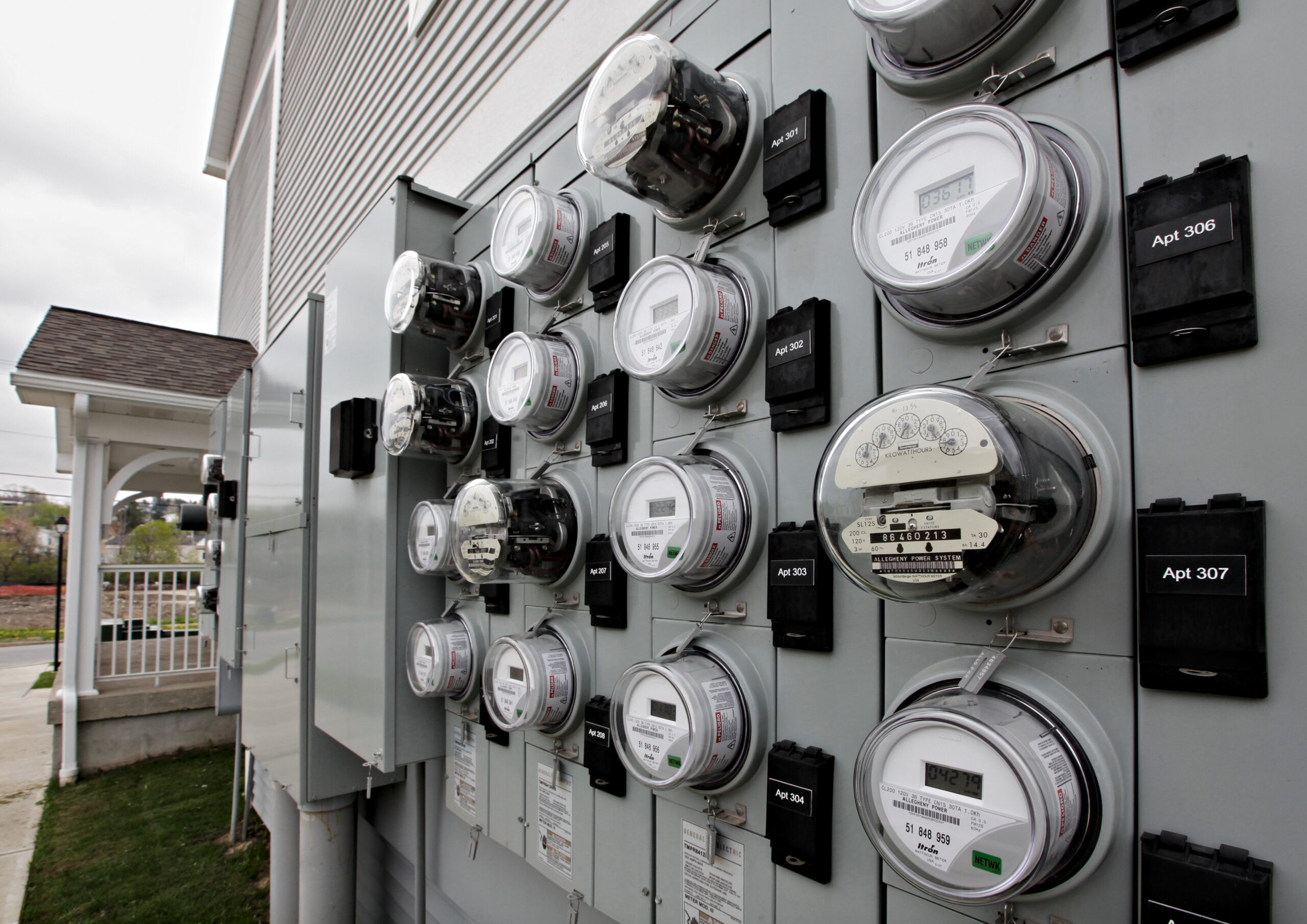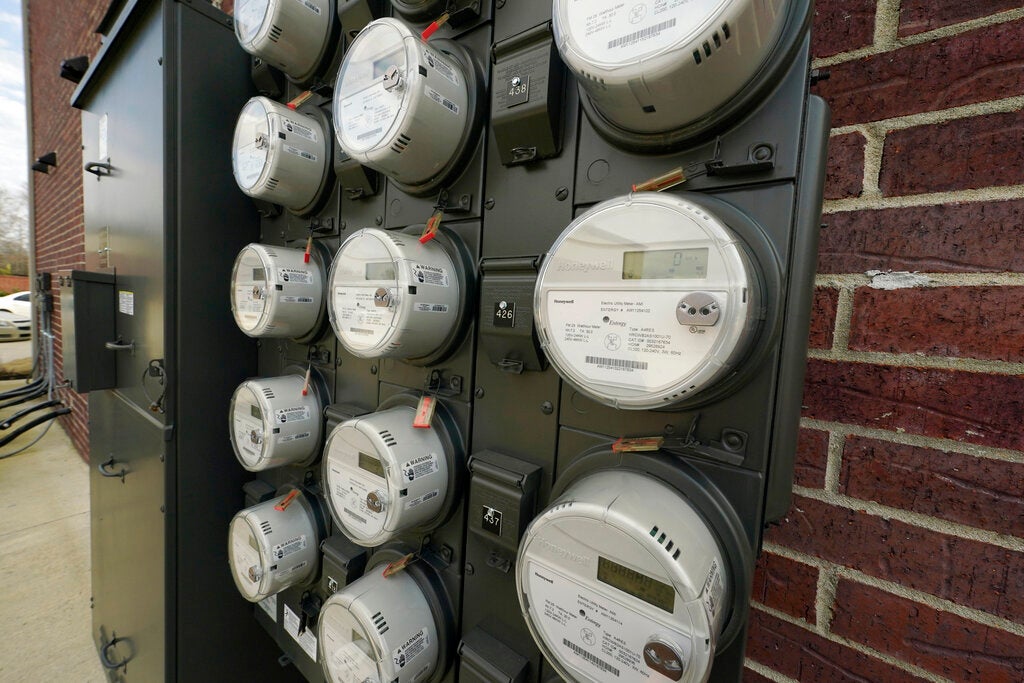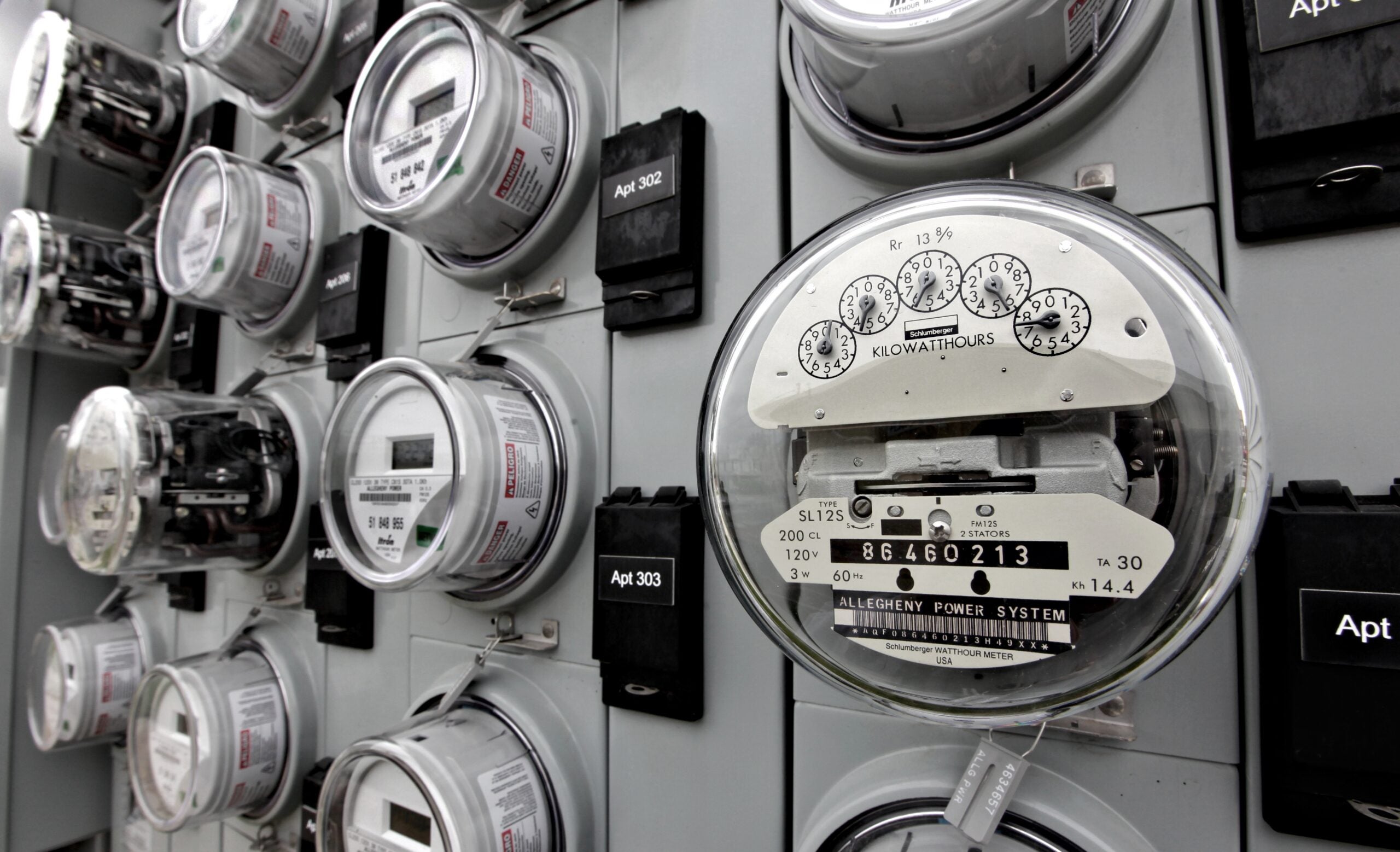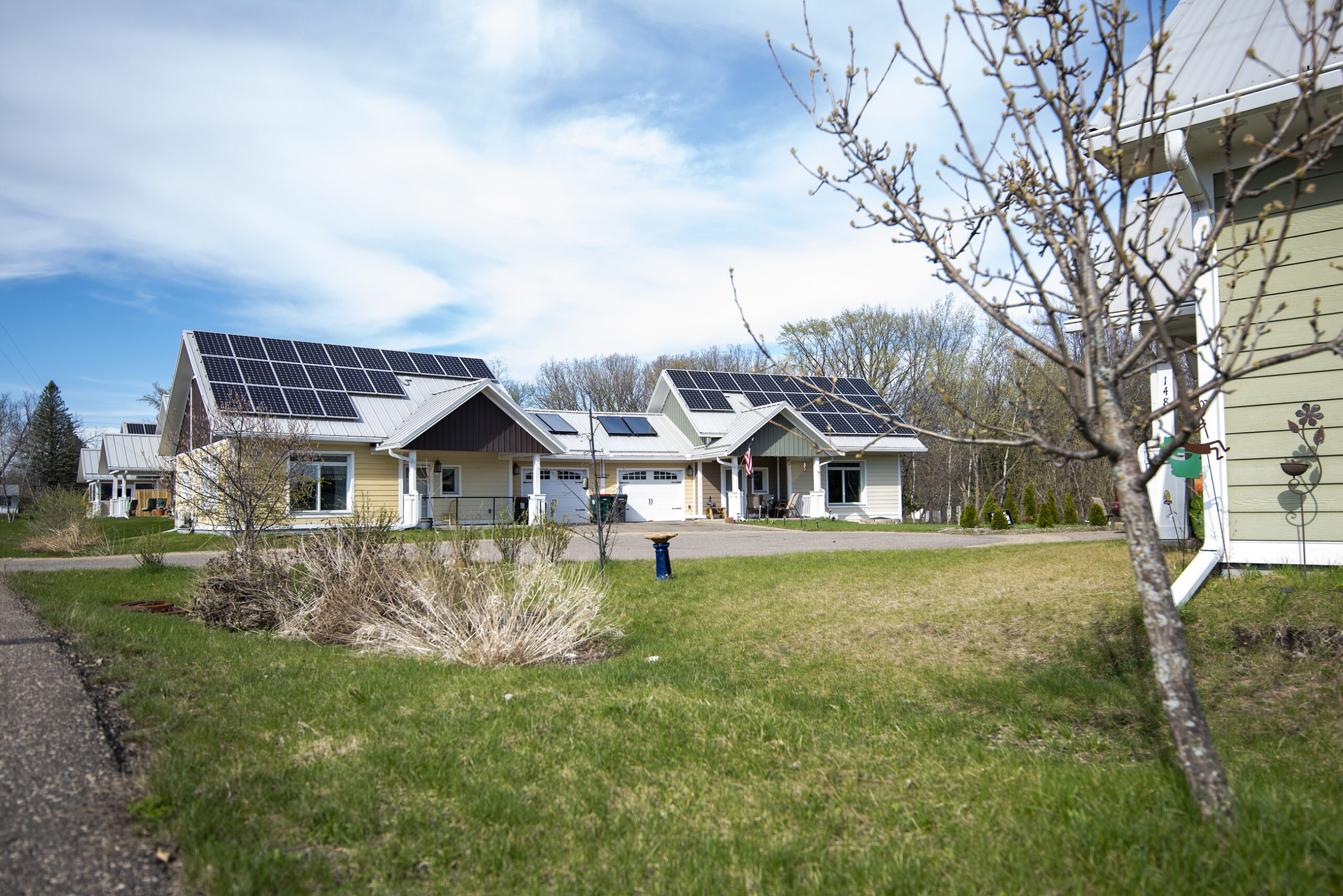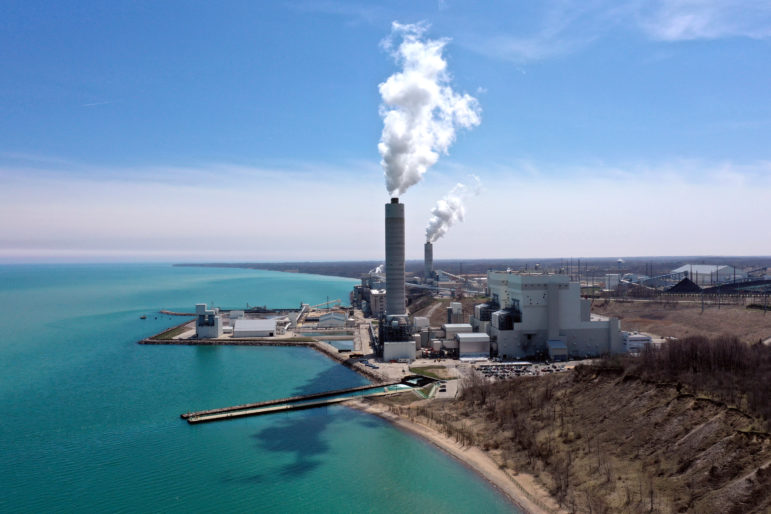Residential customers for two of Wisconsin’s largest utilities expressed outrage during public hearings this week over plans to raise monthly utility bills next year by more than double what the companies initially proposed.
Utilities owned by Milwaukee-based WEC Energy Group are now asking the Public Service Commission to sign off on raising electric bills for the average homeowner by more than $14 a month next year. The rate hike amounts to a 13 percent increase for We Energies customers and a nearly 15 percent increase for customers of Wisconsin Public Service. The utilities originally said electric bills would go up an extra $5 to $6 per month.
In a public hearing Thursday, We Energies customers said they’re already struggling with inflation and rising costs.
Stay informed on the latest news
Sign up for WPR’s email newsletter.
“We understand sometimes things must go up. We’re faced with double-digit inflation. We’re facing a recession. We’re coming out of a global pandemic. So, everybody’s hurting. Everybody’s suffering, so what you’re doing is adding insult to injury,” said Duril White, a Milwaukee resident who lives in Metcalfe Park.
For natural gas customers, the average homeowner using Wisconsin Gas service would pay nearly $7 more per month while Wisconsin Electric Gas customers would pay an extra $8 each month. Residential customers receiving gas service through WPS would pay around $5 more monthly or an 8.7 percent increase.
Those costs are on top of roughly $20 to $30 more each month that customers are expected to face this winter. Heating bills are slated to increase 28 percent for homes heated with natural gas due to soaring prices stemming from Russia’s war in Ukraine.
“People have already been struggling with gas prices this year, food prices, you name it,” said Tom Content, executive director of ratepayer advocacy group the Citizens Utility Board. “This is just too much.”
Utilities are asking for money from ratepayers as they face increasing costs tied to inflation and clean energy projects. Brendan Conway, a spokesperson for the utilities, said electric bills would remain under the national average.
Even so, they’re asking residential customers to foot more of the bill while rates for large industrial customers would go up half as much as the average homeowner. We Energies suggests hiking electric rates for its largest users by 6.4 percent each year while WPS would raise rates on large industrial customers by 7.27 percent.
“This thing is going to really impoverish us,” said Lillian Mendez, a WPS customer in a Tuesday hearing. “The fact that the companies are only getting 7 percent requirement for an increase, and we as residents, as the average Joe, are being asked to put 14.7 (percent) — that is clearly not fair.”
Wisconsin Industrial Energy Group, which represents large industrial customers, argued energy costs often make up a quarter of their expenses in a filing with the commission. The group said their members’ out-of-state competitors enjoy lower energy costs.
“Further deterioration of industrial rate competitiveness could snowball and hurt residential and small business customers as industrial production leaves Wisconsin for any one of the many states with more competitive industrial electric rates,” wrote an attorney for the group.
According to the group, commission staff previously recommended residential customers pay a larger share of the increase prior to utilities’ proposal for divvying up rates — although staff noted the commission could find it reasonable to support a smaller increase for residential ratepayers.
We Energies and Wisconsin Public Service are not proposing to lower their rate of profits as customer advocacy groups have urged to lessen the burden on ratepayers. In a public hearing Tuesday, Sen. Rob Cowles, R-Green Bay, highlighted WEC Energy Group’s $302 million in profits last quarter. The company has drawn in more than $1.1 billion in profits so far this year.
“I certainly get that inflation of fuel costs and supply chain shortages of critical goods are causing financial burdens on utilities… But this rate proposal could mean the WPS customers are left paying the bills and healthy profits to the utility beyond its necessity,” said Cowles.
Utilities say money is needed to fund clean energy projects
In a joint filing, the utilities said reducing their profits would cause “real risk of financial harm” through lower stock prices and credit ratings. Conway said earnings are separate from the utilities’ request to increase rates. He added the company obtains lower borrowing costs for capital investments when it’s financially strong.
“Those investments are how we reliably serve our customers,” said Conway. “And, as we’re going through this massive clean energy transition, spending billions of dollars building new capital projects, solar, wind, battery storage, efficient natural gas generation — we need that capital on the front end to build those things.”
James Buchen, executive director of Wisconsin Utility Investors, urged the commission to approve the proposal on behalf of 50,000 people who own shares in gas and electric utilities. He said higher interest rates and inflation have had a negative effect on everyone whether they’re utility ratepayers or shareholders.
“These forces are also driving up the cost of operating a utility, buying fuel, and building new carbon-free generation facilities,” said Buchen. “Reducing (profits) from current levels in the face of these economic forces would be damaging not only to the utilities, but to shareholders and ratepayers.”
The projects are part of the utility’s plan to cut carbon emissions by 80 percent from 2005 levels by the end of the decade and go carbon-neutral by 2050. WEC Energy Group has pledged to drop coal from its power mix by 2035. Conway said the company’s investments in the clean energy transition, along with federal incentives under the Inflation Reduction Act, are expected to save customers $2 billion over the next two decades.
‘It’s a racial justice issue as well’
Elizabeth Ward, director of Sierra Club Wisconsin, said the company is creating a false choice between the clean energy transition and affordability for customers. She’d like the commission to urge We Energies to fund energy efficiency programs to reduce the energy burden on customers.
The Sierra Club released an analysis last year that found around 85,000 Milwaukeeans live in neighborhoods with a high energy burden, or high share of income spent on utility bills, averaging 6 percent or more.
“Latinx, Hispanic and Black neighborhoods pay significantly bigger, or have significantly larger energy burdens than their white counterpart neighborhoods,” said Ward. “So as much as it is a climate issue and customer affordability issue, it’s a racial justice issue as well.”
The analysis found some Black and Hispanic or Latinx households spend as much as 10 percent of their income on energy bills and redlined neighborhoods face some of the highest energy burdens. For some low-income families, it’s 15 percent to 20 percent.
Conway said the company believes the rate increases for low-income customers can be wiped out through energy assistance that’s available.
“We’ve worked to secure energy assistance dollars. We’re contributing millions to the Keep Wisconsin Warm Fund, and so there is significant energy assistance available this winter,” said Conway.
Gov. Tony Evers announced $16.6 million for the Wisconsin Home Energy Assistance Program and Keep Wisconsin Warm/Cool Fund in September. On Wednesday, the Biden administration also announced an extra $9 billion for low-income households to lower energy costs. The money will be awarded to states in addition to $4.5 billion through the Low-Income Heating Assistance Program.
We Energies customers can still comment online about the proposed rate increase through Monday, Nov. 7.
Editor’s note: The Citizens Utility Board is an underwriter of Wisconsin Public Radio.
Wisconsin Public Radio, © Copyright 2024, Board of Regents of the University of Wisconsin System and Wisconsin Educational Communications Board.

